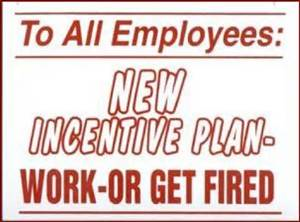 In a previous blog post, we introduced the employment law concept of condonation, and offered employers a few tips on how to avoid condoning employee misconduct (and thereby lose the opportunity to fire for cause). This week, we continue our focus on condonation, but shift our perspective to the employee and the area of constructive dismissal.
In a previous blog post, we introduced the employment law concept of condonation, and offered employers a few tips on how to avoid condoning employee misconduct (and thereby lose the opportunity to fire for cause). This week, we continue our focus on condonation, but shift our perspective to the employee and the area of constructive dismissal.
Under Canadian law, where an employer makes a unilateral and substantial change to an employee’s employment contract – a change that violates the contract’s terms – the employer is committing a fundamental breach of the contract. In some cases, significant changes to your compensation or job responsibilities may constitute such a breach.
As straightforward as that may sound, however, it can be very difficult for an employee to prove she was constructively dismissed. There have been cases where the courts have concluded that a 10% reduction in an employee’s salary was not a sufficient basis for the employee to claim constructive dismissal. While we regularly recommend that our readers obtain legal advice if they have any doubts or concerns about their employment situation, we cannot stress enough that, if ever there was a time to speak to an employment lawyer, a potential constructive dismissal situation is it.
With those caveats in mind, what’s an employee to do if she suspects that the change her employer made to her employment terms was fundamental and possibly a constructive dismissal? Under the law, the employee must elect whether to accept it, or treat it as a constructive dismissal and claim damages from her employer in lieu of reasonable notice.
How quickly does an employee need to make this decision to accept or reject the change? And what does he need to do to communicate that decision to his employer? Just as with employer condonation of employee misconduct, there are certain things an employee should and shouldn’t do if he wants to avoid the risk of condoning a unilateral, fundamental change to his employment terms and forego his chance to seek damages for constructive dismissal.
As we did for employers, we offer below a few suggestions on how employees can preserve their legal rights to compensation for a possible fundamental breach of their employment contract. Here are our top four do’s and don’ts:
1. Don’t sit idly by and do nothing. An employee who takes no action and continues to work in the new situation without complaint may be held to have condoned or accepted the change and lose his right to sue for constructive dismissal.
2. An employee is allowed a reasonable time in which to accept or reject the proposed change, but don’t wait too long. In one case, an employee who did nothing for almost six months was found to have not elected within a reasonable time.
3. If you continue to work under the new employment situation, do so under protest. If you don’t like the proposed change, tell your employer so, verbally and in writing, and try to renegotiate. It can also be wise to advise your employer that you are continuing to work in order to mitigate your damages from your constructive dismissal. And if your employer requires you to attend a training session relating to your new employment, let him know that you are not accepting the change simply by virtue of participating in that training.
4. Don’t sign anything that says you accept the change (unless of course you do accept it). We recognize that it can sometimes be problematic to resist an employer’s request, so, if you are feeling pressured, this could be a sign that it’s time for you to seek legal advice.
Again, even if you take sufficient steps to preserve your constructive dismissal claim, this area of employment law is complex and can be an uphill battle for employees. If you suspect you have a potential claim against your employer, don’t make your life harder by (not) taking steps that might allow your employer to claim you condoned its actions and accepted the change in your employment. And, we repeat, make sure to consult an employment lawyer if you think you have been constructively dismissed!
Have questions about a change to your employment? Contact us!




